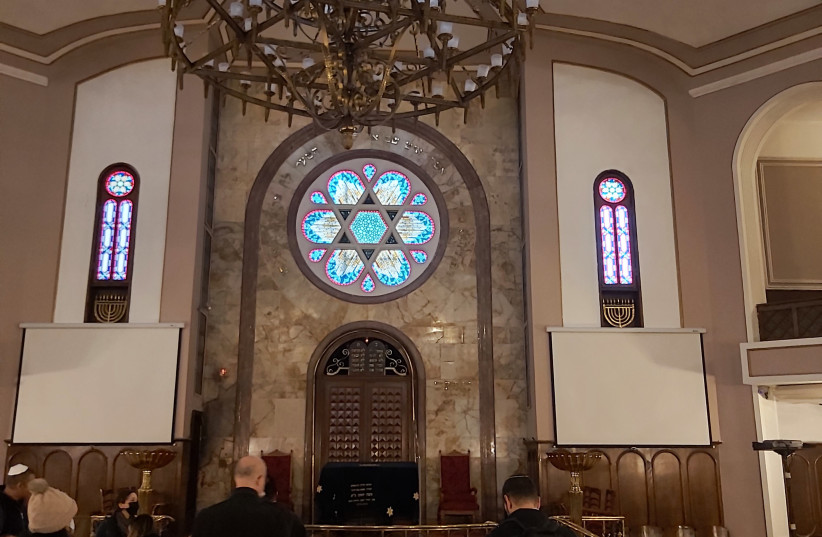On Passover, Jewish communities around the world will celebrate a historical event that took place more than 2,000 years ago to the Jewish people in Egypt – a country where Jews live today. It’s a reminder of the rich Jewish history in the region and the promising future of Jewish communities throughout the Middle East.
The Cradle of Civilization was the cradle, too, of the Jewish people. Our forefather, Abraham, was born in modern-day Iraq. Our people became a nation in the crucible of slavery under Pharaoh in Egypt. Purim, which we recently celebrated, marks our salvation in the Persian Empire’s Shushan, in modern-day Iran, and Hanukkah celebrates our liberation from the Syrian-Greeks, who ruled in what is now Syria and Turkey.
And the ties continue to run deep, even for Jewish communities who have since moved to other parts of the world. Some weeks ago, I met with Mor Grigorios Melki Urek, from Adiyaman Turkey. We conversed in Aramaic – a language both of us grew up speaking. While it doesn’t have all that many native speakers today, Aramaic is familiar both to Syriac clergy people and to young Jewish rabbinical students, who have studied the Talmud in that language for millennia.
Empires and rulers have come and gone, but one constant has remained – the Jewish communities throughout the Middle East. They have waxed and waned, but they have always been here. The thriving Alliance of Rabbis in Islamic States attests to that. We represent many thousands of Jews in dozens of cities throughout the Middle East and the greater Islamic world. Some of our communities can trace their roots back to biblical times; back to the kings and viziers of Passover, Purim and Hanukkah. And today, they continue to thrive.
Passover this year will be celebrated in Jewish communities in Turkey, Egypt and Iran, and in many more countries throughout the Middle East. The Passover Haggadah was just translated into Arabic by Rabbi Elchanan Poupko. While Jewish life has expanded far beyond its roots in the Middle East, it has not departed from those ancient communities.

And today, as thousands of Jewish people have lost their homes and possessions amid Europe’s fastest-growing refugee crisis since World War II, our Jewish communities are thankful to be in a position to be able to welcome those in need to join us. My home country of Turkey – which already hosts more refugees than any other country in the world – has welcomed some 60,000 Ukrainian refugees, and the Jewish community has been galvanized to the effort, helping feed and host those in need.
In the true spirit of Passover, we will say “all those in need, join our Seder” – as the Passover liturgy proclaims – and thousands of refugees will enjoy an inspiring and meaningful Passover in Turkey, despite the upheaval from which they have fled. As our community has done countless times before in its millennia-long history, we are once again welcoming Jewish refugees.
Of course, we do not limit the warm welcome to refugees – or to Jewish people. This year, the month of Nisan coincides with the Muslim month of Ramadan, and as we sit down to our Seder, many of our neighbors will be sitting down to Iftar meals – with their own tradition of sharing and welcoming others to join them. And as we do each year, the communities represented in the Alliance of Rabbis in Islamic States are running massive humanitarian efforts with food packages for our Muslim neighbors in need.
The Jewish community of Nigeria, together with the Foundation For Ethnic Understanding and others will distribute hundreds of thousands of food packages to people in need across the country. Similar distributions will take place in Morocco and several other countries, while Iftar meals will be hosted by Jewish communities in Turkey and the United Arab Emirates. These actions demonstrate once again that Jewish communities are an integral part of life across the Middle East.
In a world where precious few things are a constant, Jewish life in the Middle East has been one for thousands of years – from the time of the Passover story until today.
The writer serves as the Ashkenazi rabbi of Turkey and chair of the Alliance of Rabbis in Islamic States. Follow him on Twitter @mchitrik.
